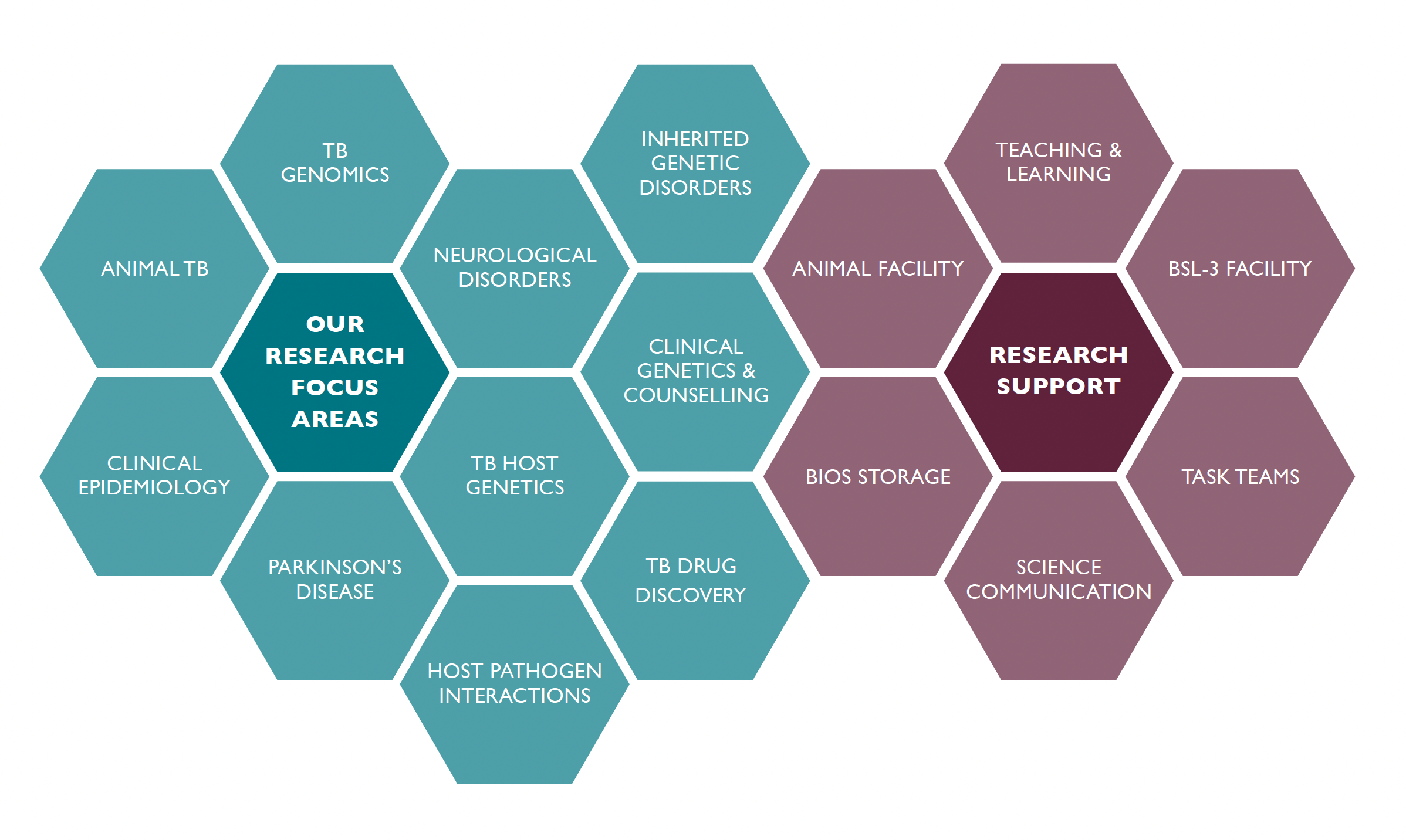The Division of Molecular Biology and Human Genetics was split into two divisions, the Division of Molecular Biology and Human Genetics and the newly established Division of Immunology, in September 2023. The web pages for these entities will be updated in due course.
The Division of Molecular Biology and Human Genetics (MBHG) is a state-of-the-art research unit within the Department of Biomedical Sciences at Stellenbosch University’s Faculty of Medicine and Health Sciences, housing the South African Medical Research Council (SAMRC) Centre for Tuberculosis Research (CTR) and two research chairs, which form part of the South African Research Chairs Initiative (SARChI), in Animal TB and Mycobactomics. Additionally, our Division housed the Stellenbosch University node of the Centre of Excellence for Biomedical Tuberculosis Research (CBTBR), a joint unit co-hosted by the Department of Science and Innovation (DSI)-National Research Foundation (NRF), from its establishment in July 2004 until its closure in March 2023.
Our division is comprised of staff and postgraduate students, including senior scientists, junior researchers, clinical scientists, postdoctoral fellows, PhD, MSc and BSc Honours students, MMed registrars, research technicians, research assistants, laboratory assistants, interns, nurses, field and laboratory support staff as well as administrative personnel.
The MBHG division focuses on two main research fields, namely tuberculosis (TB) and inherited genetic disorders. These fields are further subdivided into research focus areas that utilize innovative molecular techniques to bridge the gap between basic fundamental and clinical applications. The impact of this work and translation into clinically relevant tools will enable faster and more accurate health management strategies to improve patient outcomes. To this end, our division will continue to challenge dogma, develop new technologies, and collaborate more widely to move knowledge forward to inform policy to improve quality of life and reduce the cost of health care.

While achieving all the above, the MBHG division continues to train the next generation of research leaders of all ethnicities, thereby redressing past imbalances and inequities, stimulating economic development through future discoveries, product development, entrepreneurial ventures and inspiring future generations to follow careers in science. In addition to this innovative research and capacity development, our division also engages with communities and patients, to provide feedback on research findings to inform and educate to improve healthcare behaviour and practices to reduce disease burden.

